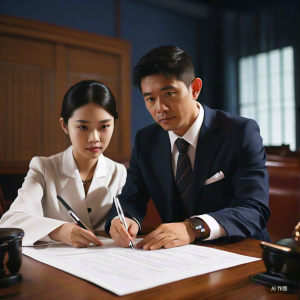
How to prepare for trial involve not only knowing how to handle your case material but following a proper procedure before setting the matter and after the matter is set for the trial as well as the proper organization and presentation of your substantive issues.
How to prepare for trial- procedural requirements
If you have a contested divorce you can file at issue Memorandum. There is some procedural prerequisite you need to follow before doing it. You must file Income and Expense Declaration and a Declaration Regarding Service of Declaration of Disclosure If the opposing party has not filed Income and Expense and Declaration Regarding Service of Declaration of Disclosure you should demonstrate that you have complied with Family Code section 2107 by attaching a copy of the request to file above-mentioned documents as well as proof of service according to with the guideline.
There are additional requirements and guidelines for filing trial briefs, witness lists, exhibits, exhibit lists.
One of the most important components of how to prepare for trial includes following those rules and time frames. Unfortunately, we can’t provide this information in this article because every court has local rules for filing the above-stated documents. In some courts, including Orange County, different departments have different rules regarding trials.
If you are the petitioner, the person who filed the petition, you will be speaking first. The tell judges your story. Prepare some notes and bring this with you to your hearing. Be sure to state necessary legal points when you organize your notes.
If you are the respondent You will speak second. The other side already presented their facts. You do not need to repeat it, you present your side of the story. Instead of disputing a little issue, focus on the essential points.
How to prepare for trial – time estimate
Before setting a trial of any trial should give a good faith and reasonable estimate of the length of the trial. You need to think about what evidence you will introduce, what exhibits will be included, and what witnesses will you be examining.
How to prepare for trial – Three stages of trial
The first stage is Opening Statements
Petitioner and respondent should be prepared to give an opening statement. In the opening statement, each party briefly explains what orders should be made by the judge and the reason. Petitioner and respondent should explain how their evidence will help in trial and what it will prove.
The next step is the presentation of evidence
The evidence is usually going to in the form of exhibits- texts, videos, audios, witnesses testimony.
How to prepare for trial includes also knowing what kind of people are good witnesses. You have to think of people who have knowledge of who you are and your good reputation in the community. Your witnesses should also have knowledge about the situation related to the issue in the trial dispute. You need to talk with your witnesses in advance to be sure that they will tell the judge would be helpful to your case.
Although you might bring a family member to be a witness for you, be aware that the judge may assume that such witness might want you to win the case.
The first questioning of witnesses calls direct examination. Be ready to ask the correct questions to your witnesses otherwise your questions could be objected to.
The parties could be their own witnesses. Each party is usually testifying and answering questions from another party.
When the petitioner has completed the direct examination, the respondent can start cross-examination, asking questions regarding what was stated during the direct examination.
After that, if there is a need for more questions, the petitioner can do a re-cross examination.
As I self-represented litigant, you should be sure to prepare for your witness’s question which would not be objected to by the opposing party or his/her attorney.
How to prepare for trial – knowing the most common objections
The most common objections are Relevance, Foundation, Hearsay, Leading questions, Compound questions
Relevance
All evidence presented in court must be relevant to the issues in the case.
The judge can object to the relevance of evidence if whatever witness saying it is not important in determining who should prevail in the issue or when your witness is saying something with very little to do with the case.
Foundation
The judge can object the question or response if you failed to explain the background circumstances of how your witness knows the information she provided. When answering about specific facts, the witness has to set the stage and explain how she knows the information that she provided.
Leading question
If you ask a question on direct examination that leads your witness to a certain answer, such as yes or no the judge can object to the question as leading. For example: “You are Mr. Ress’s mother, correct?” The correct question would be instead of “How do you know Mr. Ress?” However, in the trial, the judge sometimes allows leading questions even during direct examination for simple background information in order to speed up the process.
Compound question
A compound question is a question that combines two or more questions. Such questions are not allowed because they are confused the court as well as your own witness. Example: Why did you return to the house and why do you think it was a good idea to take the children with you?
How to prepare for trial is including preparing proper questions for your witnesses and being ready to know the objections to be able to conduct cross-examination of the witnesses of opposing party.
714-390-3766

